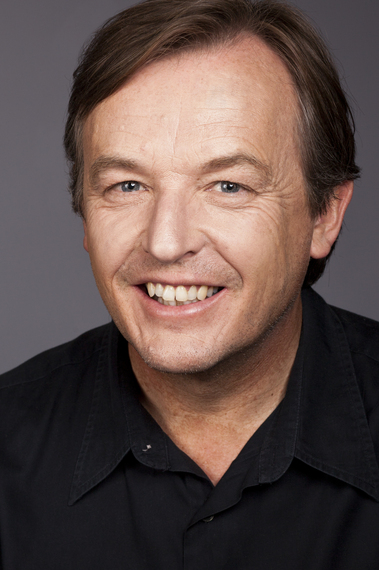Chris Anderson is the curator of the TED Conference, a conference that explores the power of ideas to make a difference in the world.
Anderson was born in Pakistan in 1957. His parents were medical missionaries and he spent most of his early life in Pakistan, India and Afghanistan. In 1978 he graduated from Oxford University with a degree in Philosophy, Politics, and Economics.
In 1985 he launched Future Publishing, which ultimately expanded to more than 130 magazines, including Business 2.0, and more than 1,500 employees.
In 2001 Anderson acquired the TED Conference through his non-profit Sapling Foundation. Under his stewardship, over 1,700 TED talks have been released free online to a global audience. He's overseen introduction of the TED Prize, the TED Fellows Program, the TED Open Translation Program, the TED-Ed initiative, and the TEDx program which allows hundreds of independently organized TED-like events to be held around the world (over 10,000 held so far).
Ann Paisley Chandler: After a career in journalism and publishing, you became the curator of the TED Conference in 2002. How has TED evolved over time?
Chris Anderson: TED started off thirty years ago as a closed-door conference focused on Technology, Entertainment and Design. Today it has shifted from conference to global platform - one that nurtures the spread of good ideas, both online and in person. And, the T, E and D have broadened to include any credible topic of interest, including all areas of science, culture and public concern.
Throughout this evolution, the brand has stood for the thrill of learning, inspiration, and a journey toward a wiser world. Ours is a cross-disciplinary approach that says, if more people understood subject matter outside their main interests, even if only at a basic level, our shared conversation would be a lot more productive.
Ann Paisley Chandler: What has been your favorite TED Talk on philanthropy and fundraising?
Chris Anderson: Dan Pallotta, The Way We Think About Charity is Dead Wrong
Ann Paisley Chandler: What TED projects do you think have had the greatest impact?
Chris Anderson: We're proud that so many of our experiments have led to real, recurring impact - TED Fellows, the TED Prize, TED-Ed, and more. Perhaps the most explosively successful, however, is TEDx, which now boasts more than 10,000 independent events held around the world and continuing at the rate of about eight every day.
These organizers book their own speakers and take care of their own logistics - it's only by genuinely granting that power to local organizers that we could have achieved this kind of scale.
Collectively TEDx events are building a worldwide network of communities in hundreds of cities, dedicated to understanding the world a little more clearly and to helping usher in a better future, both locally and globally.
Ann Paisley Chandler: Who has not presented at TED that you would like to have?
Chris Anderson: The Pope.
Ann Paisley Chandler: What are your thoughts about developing solutions from the ground and upwards? I'd like to find out which philanthropic trends you're seeing around the world that may change philanthropy as we know it.
Chris Anderson: Philanthropy is crying out for a widely accepted social metrics system. We tend to focus on what we can measure and far too much time is therefore spent focusing on money rather than what money can accomplish. For example, in the field of impact investing, too much focus is on the investing aspect, not enough on the social impact. Better metrics would help fix that. There are some intriguing initiatives out there, and I really hope that one of them gets traction.

